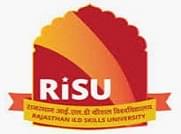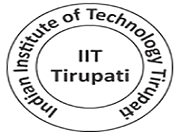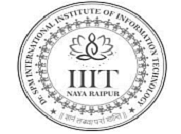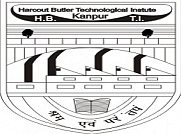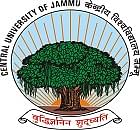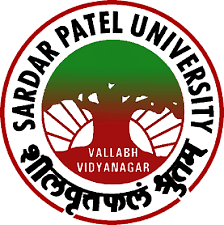Introduction about PhD in English
A Doctor of
Philosophy (PhD) in English from the top college in India is an advanced
academic degree that allows students to delve deeply into the study of
literature, language, and cultural discourse in the English language. This
rigorous program typically requires several years of intensive research,
coursework, and writing, culminating in a dissertation that contributes
original insights to the field.
PhD
candidates in English often have the opportunity to specialize in a particular
area of interest, such as Renaissance literature, contemporary fiction,
postcolonial studies, or linguistics. Throughout their studies, they engage
with a diverse range of texts, theories, and critical methodologies, honing
their analytical skills and developing a nuanced understanding of literary and
linguistic phenomena.
Beyond the
academic aspect, a PhD in English equips students with valuable skills in
research, critical thinking, and communication, which are highly transferable
to a variety of career paths. Graduates may pursue careers in academia as
professors or researchers, but they also find success in fields such as
publishing, journalism, editing, communications, and more.
Overall, a
PhD in English offers a rich and intellectually stimulating journey for those
passionate about exploring the complexities of language, literature, and
culture. It provides the opportunity to make significant contributions to
scholarship while preparing graduates for diverse professional opportunities in
an increasingly globalized world.
What is eligibility criteria for PhD in English
The
eligibility criteria for a PhD in English can vary depending on the institution
and country where you are applying. However, some common requirements typically
include:
1. Educational Background: Candidates
are usually required to have a master's degree in English literature, English
language, or a related field. Some programs may accept candidates with a
bachelor's degree, particularly if they have exceptional academic credentials
or relevant experience.
2. Academic Performance: Applicants are
generally expected to have a strong academic record, typically with a minimum
GPA requirement set by the institution. This requirement may vary, but most
programs seek candidates with consistently high grades throughout their
previous studies.
3. Standardized Tests: Some
universities require applicants to submit scores from standardized tests such
as the GRE (Graduate Record Examination) or the TOEFL (Test of English as a
Foreign Language) for non-native English speakers. However, not all institutions
have this requirement, so it's essential to check the specific requirements of
each program.
4. Language Proficiency: Since the
program is conducted in English, proficiency in the English language is
crucial. Non-native English speakers may be required to demonstrate proficiency
through standardized tests such as the TOEFL or IELTS (International English
Language Testing System).
5. Letters of Recommendation: Most PhD
programs in English require applicants to submit letters of recommendation from
academic mentors or professionals who can attest to the candidate's academic
abilities, research potential, and suitability for doctoral studies.
6. Statement of Purpose or Research
Proposal: Applicants are often required to submit a statement of purpose
outlining their academic and research background, interests, and goals. Some
programs may also require a detailed research proposal outlining the topic,
objectives, and methodology of the proposed doctoral research.
7. Interview: In some cases, candidates
may be required to participate in an interview as part of the admissions
process. This interview may be conducted in person, over the phone, or via
video conference and serves as an opportunity for the admissions committee to
assess the candidate's qualifications, research interests, and fit for the
program.
8. It's important to note that these
criteria can vary significantly between institutions, so prospective applicants
should carefully review the specific requirements and application procedures of
each program they are interested in. Additionally, meeting the minimum
eligibility criteria does not guarantee admission, as PhD programs in English
are often highly competitive, and admissions decisions are based on a
combination of factors, including academic qualifications, research potential,
fit with the program, and available resources.
What is admission process for PhD in English ?
The
admission process for a PhD in English at the top university typically
involves several steps, which may vary slightly depending on the institution
and country. Here's a general overview of the typical process:
§ Research Programs and Institutions:
The first step is to research potential PhD programs in English literature,
language, or related fields offered by universities or institutions. Consider
factors such as faculty expertise, research facilities, program reputation, and
funding opportunities.
§ Review Admission Requirements:
Carefully review the admission requirements and application deadlines for each
program you are interested in. Common requirements include academic
transcripts, standardized test scores (if applicable), letters of recommendation,
a statement of purpose or research proposal, and language proficiency test
scores (for non-native English speakers).
§ Prepare Application Materials:
Gather all required application materials, including academic transcripts,
standardized test scores, letters of recommendation, a statement of purpose or
research proposal, and any other documents specified by the program. Ensure
that your application materials are well-written, organized, and tailored to
the specific requirements of each program.
§ Submit Applications: Complete and
submit your applications through the university's online application portal or
by mail, following the instructions provided by each program. Be sure to submit
all required materials before the application deadline to ensure consideration.
§ Application Review: Once the
application deadline has passed, the admissions committee will review all
submitted applications. This process may involve assessing academic
qualifications, research potential, letters of recommendation, statement of
purpose or research proposal, and other relevant factors.
§ Interview (if applicable): Some
programs may require applicants to participate in an interview as part of the
admissions process. If selected for an interview, be prepared to discuss your
academic background, research interests, and fit for the program.
§ Admissions Decision: After reviewing
all applications, the admissions committee will make decisions regarding
acceptance, rejection, or placement on a waitlist. Applicants will typically be
notified of the admissions decision within a few weeks to a few months after
the application deadline.
§ Acceptance and Enrollment: If
accepted, you will receive an official offer of admission from the university.
You may be required to submit additional documentation, such as proof of
funding or health insurance, and confirm your intent to enroll by a specified
deadline. Once you accept the offer, you will work with the university to
complete the enrollment process and prepare for the start of your PhD studies.
Throughout
the admission process, it's essential to stay organized, meet all application
deadlines, and communicate effectively with the admissions office if you have
any questions or concerns. Good luck with your applications!
What is syllabus for PhD in English ?
The
syllabus for a PhD in English can vary significantly depending on the
institution, the specific focus or concentration of the program, and the
research interests of the student. However, I can provide a general overview of
the types of courses and areas of study that may be included in a typical PhD
program in English:
v Core Courses: These courses provide
foundational knowledge and may cover topics such as literary theory, critical
approaches to literature, research methods, and academic writing. Core courses
aim to equip students with the theoretical and methodological tools necessary
for advanced research in English studies.
v Specialized Seminars: PhD programs
often offer specialized seminars that focus on particular genres, periods,
authors, or themes within English literature and language. These seminars
provide in-depth exploration of specific topics and allow students to engage
deeply with primary texts, critical debates, and theoretical frameworks
relevant to their research interests.
v Language Studies: Depending on the
focus of the program, students may be required to study one or more languages
relevant to their research. This may include Old English, Middle English,
Latin, Greek, or modern languages such as French, German, or Spanish,
particularly if they are relevant to the student's area of specialization.
v Literary and Cultural Theory:
Courses in literary and cultural theory explore theoretical approaches to
literature, language, and culture from a variety of perspectives, such as
structuralism, poststructuralism, feminism, postcolonialism, queer theory, and
critical race theory. These courses provide students with the theoretical
frameworks necessary to critically analyze and interpret literary texts and
cultural phenomena.
v Research Seminars and Workshops: PhD
programs often include research seminars and workshops designed to help
students develop their research projects, refine their research questions,
conduct scholarly inquiry, and write effectively for academic audiences. These
seminars may also cover topics such as dissertation preparation, grant writing,
and publication strategies.
v Elective Courses: Students typically
have the opportunity to choose elective courses that align with their research
interests and career goals. Elective courses may cover a wide range of topics,
including specific literary periods, genres, authors, critical approaches,
interdisciplinary studies, or relevant fields such as linguistics, cultural
studies, or digital humanities.
v Independent Study and Dissertation
Research: A significant portion of the PhD program is dedicated to independent
study and dissertation research. Students work closely with faculty advisors to
develop and refine their dissertation projects, conduct original research, and
produce a substantial scholarly work that contributes new knowledge to the
field of English studies.
It's
important to note that the specific syllabus and course offerings may vary from
one institution to another, so prospective students should carefully review the
curriculum and course descriptions of each program they are considering to
ensure that it aligns with their academic and research interests. Additionally,
PhD programs often provide flexibility for students to tailor their coursework
and research to their individual goals and areas of specialization.
What are scope after PhD in English ?
The scope
after completing PhD in English at the top affordable college is diverse and extends beyond traditional academic
roles. Here are some potential career paths and opportunities:
§ Academic Careers: Many PhD graduates
pursue academic careers as professors or researchers in universities and
colleges. They may teach courses in English literature, language, composition,
creative writing, or related fields, while also conducting research, publishing
scholarly articles and books, and mentoring students.
§ Research Positions: PhD holders in
English may work in research institutions, think tanks, or academic centers,
where they conduct independent research, contribute to scholarly publications,
and collaborate with other researchers on interdisciplinary projects.
§ Publishing and Editing: Some
graduates find employment in the publishing industry as editors, copywriters,
or literary agents. They may work for publishing houses, literary magazines,
academic journals, or online platforms, helping to evaluate manuscripts, edit
texts, and manage publication processes.
§ Writing and Communication: PhD
graduates with strong writing and communication skills may pursue careers in
journalism, public relations, technical writing, or content creation. They may
work for newspapers, magazines, websites, marketing firms, or corporate
communications departments, producing written content for diverse audiences.
§ Education Administration: Some PhD
holders in English transition into roles in education administration, such as
academic deans, department chairs, program directors, or educational
consultants. They may work in universities, colleges, K-12 schools, or educational
organizations, overseeing academic programs, managing budgets, and developing
curricula.
§ Cultural Institutions: Graduates
with expertise in English literature and language may find employment in
cultural institutions such as museums, libraries, archives, or cultural
centers. They may work as curators, archivists, or educators, helping to preserve
and promote literary heritage and cultural resources.
§ Nonprofit and Advocacy
Organizations: PhD holders in English may work for nonprofit organizations,
advocacy groups, or NGOs that focus on literacy, education, language rights, or
social justice issues. They may contribute to advocacy campaigns, develop educational
programs, or conduct research on language policy and social inequality.
§ Freelance and Consulting: Some
graduates choose to work as freelance writers, editors, or consultants,
offering their expertise on a contractual basis to clients in various
industries. They may provide editorial services, develop educational materials,
or conduct research and analysis for organizations or individuals.
§ Overall, the scope after completing a PhD in English is broad and adaptable, with opportunities available in academia, research, publishing, education, communication, cultural institutions, nonprofit organizations, and beyond. Graduates can leverage their advanced training in critical thinking, research, writing, and communication to pursue diverse career paths and make meaningful contributions to society.
Universityfindo provides you a platform where you fulfill your dreams and takes a step forward towards in your life . We provide you all courses with affordable fees and safe environment . For more information contact us on our website : universityfindo.com .






